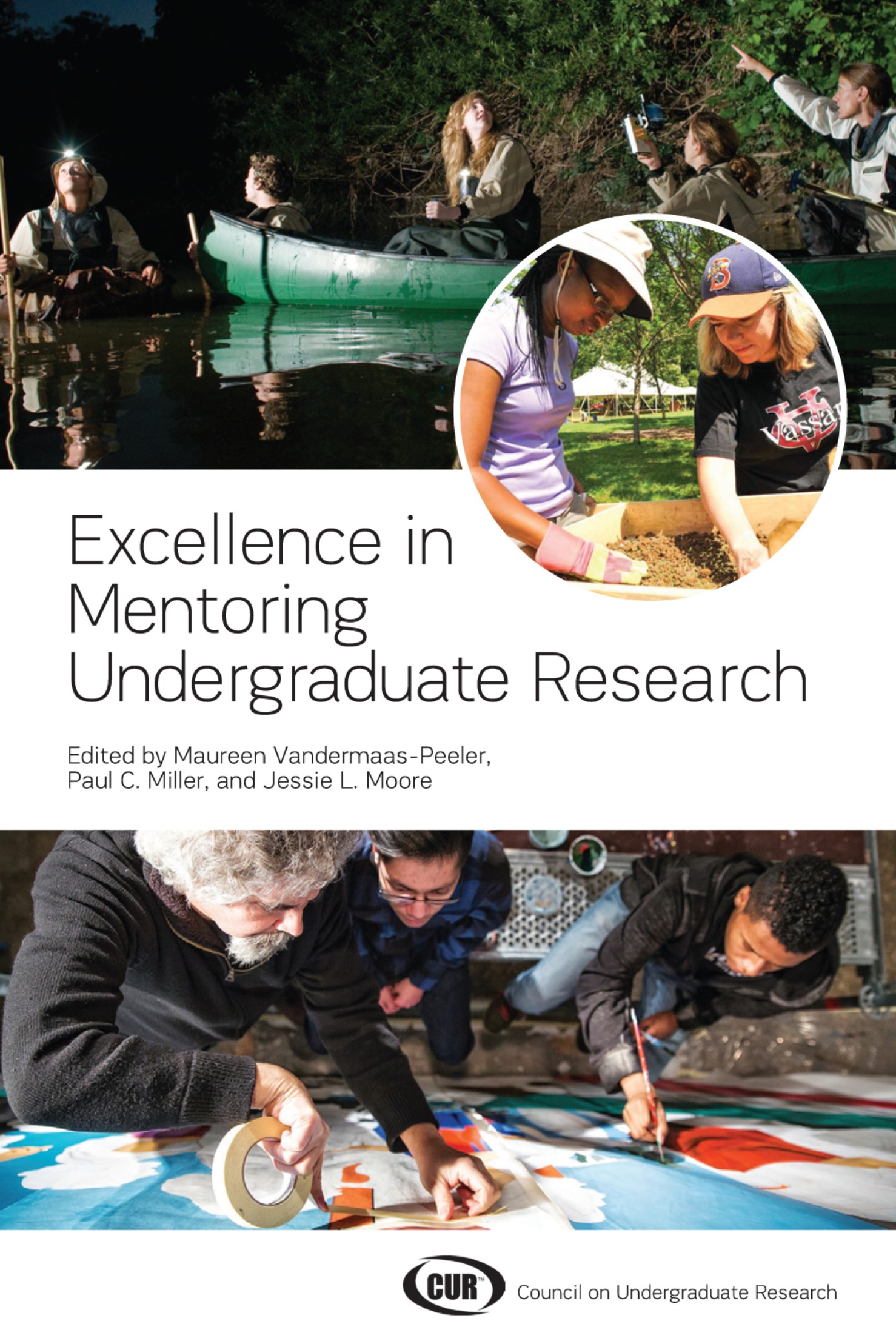The latest book from CUR is Excellence in Mentoring Undergraduate Research, edited by Maureen Vandermaas-Peeler, Paul C. Miller, and Jessie L. Moore. The volume offers both advice (to mentors and institutions) and information about the latest trends in mentoring. The biggest overall argument of the book is that we need to find ways to “scale access to high-quality mentored UR within institutions,” bundling and scaffolding opportunities within the curriculum (217). Given this goal, the book is clearly aimed at a wide audience, but there are some key lessons for faculty in the arts and humanities.

Sections specific to the arts and humanities
As you might expect, the arguments drawn from surveys are less specifically useful to the arts and humanities because STEM projects still dominate undergraduate research. In one survey mentioned, for example, only 6.1% of the respondents were in humanities and arts (23). But five of the volume’s 27 contributors are in the arts and humanities: one artist (Dijana Ihas), three English/writing faculty (Jane Greer, Jessie Moore, and Michael Neal), and CURAH’s own Jenny Olin Shanahan. Their experiences come through in case studies and in specific recommendations. One special section, by music professor Dijana Ihas, is specifically devoted to “mentoring research in the arts” (138-142). Later, in the chapter on integrating research into the curriculum, there appears a short program-level case study of the English curriculum at St. Mary’s University of Minnesota (189-190).
Trending topics
- Including underrepresented students in undergraduate research
- Integrating research into the curriculum
- Co-mentoring
- Faculty development
If you can only read one chapter, what should it be?
- For individual faculty mentors: Chapter 4: “10 Salient Practices for Mentoring,” by Helen Walkington, Eric E. Hall, Jenny Olin Shanahan, Elizabeth Ackley, and Kearsley Stewart
- For anyone involved in curriculum development: Chapter 7: “Undergraduate Research in the Curriculum and as Pedagogy” by Brad Wuetherick, John Willison, and Jenny Olin Shanahan.
- For administrators: Chapter 5: “Supporting Faculty Development for Mentoring in Undergraduate Research, Scholarship, and Creative Work,” by Vicki L. Baker, Jane Greer, Laura G. Lunsford, Dijana Ihas, and Meghan J. Pifer.
Where can I get this book?
Excellence in Mentoring Undergraduate Research is currently available only from CUR’s bookstore, with an ebook available from Google Play.


